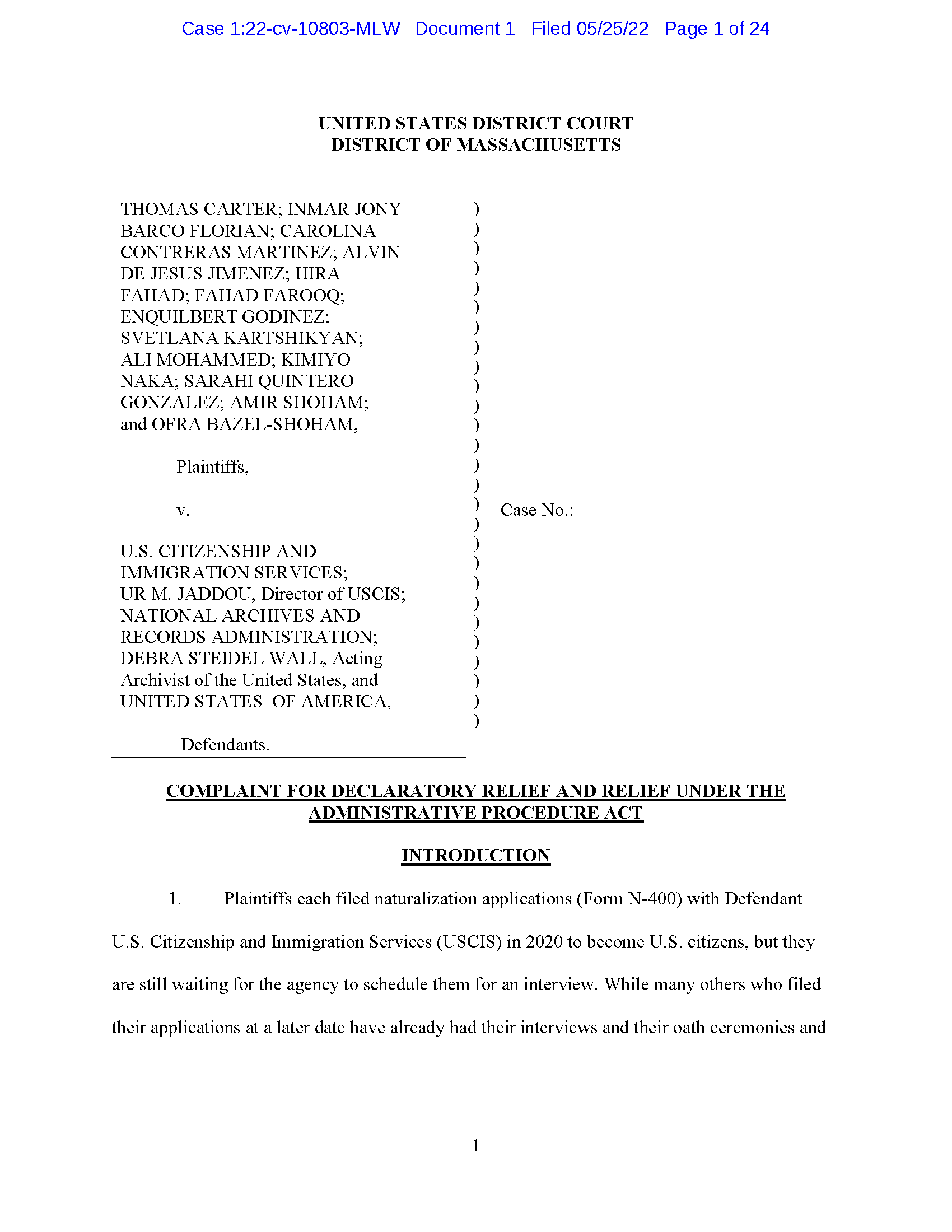- Litigation
Challenging USCIS To End Naturalization Application Delays
Carter, v. USCIS, Case No. 1:22-cv-10803-FDS (D. Mass.)
This lawsuit, filed on behalf of U.S. citizenship applicants, challenges U.S. Citizenship and Immigration Services’ (USCIS) unreasonable delay in processing their applications that were filed in 2020.
The initial suit sought to require the National Archives and Records Administration (NARA) and USCIS to prioritize the retrieval of immigration files, and USCIS to complete the naturalization process without further delay. Plaintiffs are U.S. lawful permanent residents who applied to become U.S. citizens and who wait for interviews, and their applications remain unadjudicated because their immigration files were stuck in storage.
USCIS chose to place paper-based immigration files for which it is responsible at a Federal Records Centers—operated by NARA—and then disclaimed responsibility when the COVID-19 pandemic restricted access to the Centers. The agency did not prioritize retrieving these immigration records (known as “A-files”) after the Federal Records Centers returned to full capacity operations in March 2022, although USCIS was assisting NARA with file retrieval. USCIS also has not prioritized interviewing people with applications pending because their records were stuck or deciding their applications.
After the lawsuit was filed, NARA completed A-file retrieval, and USCIS scheduled most of the original plaintiffs for citizenship interviews. But USCIS did not commit to prioritizing the naturalization application process—interview, adjudication, and oath ceremony upon application approval—for plaintiffs or other citizenship applicants who are in a similar situation. On July 1, 2022, an amended complaint was filed, which included claims on behalf of a proposed class who filed a citizenship application, whose A-files USCIS had stored in NARA Federal Records Centers, and who have not yet been interviewed on their application.
On August 26, 2022, the government filed a motion to dismiss, claiming that since the named plaintiffs had been scheduled for interviews, they did not have any other claims against USCIS or Director Jaddou and there was no other relief the court could order. On September 9, plaintiffs opposed the motion, arguing that USCIS could not get rid of the case by voluntarily ceasing the delay as to them, and the court could still decide whether USCIS unreasonably delayed when it failed to plan for the A-file retrieval and prioritize the processing of 2020 naturalization applications post-retrieval.
By September 1, 2022, all of the Plaintiffs had been interviewed, and by September 13, they had each become U.S. citizens, with one exception, whose application USCIS denied. The government filed a reply on September 21, but the court did not decide the motion. On November 16, 2022, the parties filed a stipulation dismissing the lawsuit.
Plaintiffs and other naturalization applicants who had not completed the application process because their immigration files were stuck in a Federal Records Center, faced a loss that other applicants for immigration benefits did not—the right to vote in the November 2022 elections. Plaintiffs, and others, had their applications adjudicated, and if approved, became U.S. citizens in time to vote.
The lawsuit was filed in the federal district court for the District of Massachusetts by the American Immigration Council and the law firm Gibbs Houston Pauw.


